The Greatest Home Run
A sports moment for the ages, a botched radio call, a live broadcast believed lost forever… then miraculously rediscovered. What a story!
By Mark Wainwright
 The History Channel calls it “The Most Dramatic Home Run in World Series History.” ESPN has often described it as the greatest home run of all time. To this day, it is the only World Series Game 7 walk-off home run.
The History Channel calls it “The Most Dramatic Home Run in World Series History.” ESPN has often described it as the greatest home run of all time. To this day, it is the only World Series Game 7 walk-off home run.
Long-time baseball fans know the basic facts: On October 13, 1960, Bill Mazeroski of the Pittsburgh Pirates hit a line drive over the left field wall at Pittsburgh’s Forbes Field to win the World Series for the Pirates.
This was an iconic moment in baseball history, and an iconic moment in baseball broadcasting history, as well … although the Hall of Fame broadcaster who described the moment for the national radio audience probably wished he could have done a second take!
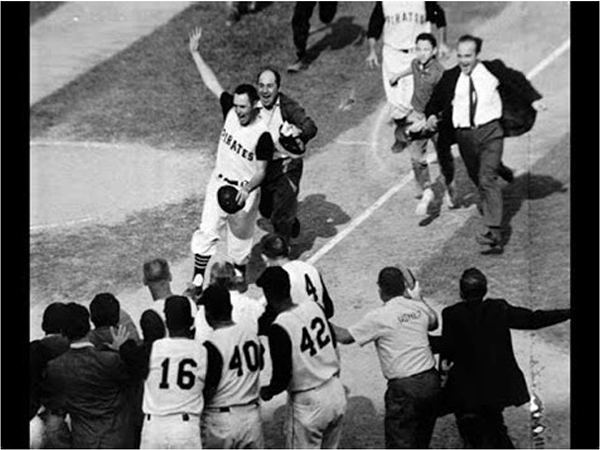
Above: Bill Mazeroski crosses the plate for the Game 7 victory! (photo courtesy YouTube)
It was a dramatic finish to an astonishing World Series, but as often happens, the backstory of that moment and how it was broadcast– and everything that led up to it – has been largely forgotten. As we follow this year’s MLB playoffs (while taking note of the anniversary), it’s worthwhile to look back at an earlier, very different era of post-season baseball…
******************************
The 1960 World Series opponents could hardly have been more different. The New York Yankees of that era were a machine, and the 1960 team easily dominated the American League on their way to the pennant. In contrast, the Pittsburgh Pirates were a surprise. The Pirates had not been to the Series since 1927, they were coming off a mediocre 1959 season, and expectations were low… but they got off to a good start and managed to keep it going. With timely pitching, clutch hitting, lucky breaks, and a never-say-die attitude (21 of their 95 wins came in their final at-bat), the Pirates claimed the National League pennant. The Yankees were studs, while the Pirates were scrappers, and the first six games of the Series reflected the character and personality of the respective teams.
In their three wins, the Yankee sluggers clobbered Pittsburgh pitchers for 38 runs. Yet, the Pirates managed to hang on, squeezing out three close victories in response. It all came down to Game 7 at Forbes Field on the afternoon of Thursday, October 13. Not only were there multiple Hall-of-Famers on the field and in the dugouts, there were Hall-of-Famers in both the TV and radio broadcast booths:
NBC’s national TV broadcast (in “Living Color!”) was handled by Yankees announcer Mel Allen and the Pirates’ Bob Prince, while NBC’s national radio broadcast was called by the Chicago Cubs’ Jack Quinlan, and Chuck Thompson, the play-by-play voice of the Washington Senators… wait, what? The Washington Senators? Wasn’t Chuck Thompson the voice of the Baltimore Orioles forever? For most of his career, yes… but Thompson was caught in a business dispute between the Baltimore brewery that owned the Orioles and the Baltimore brewery that owned his broadcasting contract, so Chuck wound up in Washington for a while (alas, as so often happens in life, it was a battle between money and beer, and money won out).
Game 7 combined and concentrated all the craziness of the previous six. Both pitching staffs were tired, and the hitters took advantage; it is the only game in World Series history where no pitcher from either team recorded even a single strikeout. The Pirates jumped out to an early 2-0 lead, but the New York offense awakened and the Yankees took a 7-4 lead into the bottom of the eighth inning. That’s when things really started to get strange…
In the Pittsburgh half of the 8th, it appeared a routine ground ball would start a double-play and stall a potential Pittsburgh rally… but the ball took a bad hop and hit Yankee shortstop (and later, Hall of Fame broadcaster) Tony Kubek in the throat. He got up bleeding and gasping for air, and was taken to the hospital with bruised vocal cords and a swollen trachea.The injury didn’t damage Kubek’s future career, but it kept the Pirates alive, and they followed with five runs to take a 9-7 lead into the 9th inning. Just three outs away, and yet…
The Yankees scored two runs to tie it at 9-9. The tying run was another odd play; a hard shot toward first base looked like a game-ending (and Series-ending) double play, but Pittsburgh first baseman Rocky Nelson took the easy out at first… which turned the play into a fielders’ choice. Mickey Mantle (the runner already on first) dove back to base and avoided the tag, which gave the Yankee runner on third the opportunity to tie it up. The Yankee inning ended with a routine ground out, so it all came down to the bottom of the 9th.
New York manager Casey Stengel left Ralph Terry in to pitch the 9th, with 15-game-winner Art Ditmar warming in the bullpen, if needed. Second baseman Bill Mazeroski would lead off the inning for the Pirates. Mazeroski was much better known for his outstanding glove work than his hitting, but he had one of the Pirates’ hottest bats late in the season, and it paid off.
Ball one, high. Catcher Johnny Blanchard went to the mound to briefly confer with Terry. Up in the radio booth, Chuck Thompson was obviously caught up in the excitement of the moment and everything leading up to it:
“Well, a little while ago, when we mentioned that this one, in typical fashion, was going right to the wire, little did we know…”
Then, at 3:36 pm, the 1-0 pitch, and…
“Art Ditmar throws…”
(Chuck, no! Ditmar’s still in the bullpen! Terry’s pitching!)
Thompson called the following moments superbly when Mazeroski connected and the ball sailed over the wall at the 406’ mark. Pandemonium ensued as Mazeroski quickly rounded the bases. Fans poured onto the field; it looked like half of Pittsburgh was poised to welcome him at home plate.
Unfortunately, Thompson committed another gaffe in the midst of the uproar:
“Ladies and gentlemen, Mazeroski has hit a one-nothing pitch over the left field fence at Forbes Field to win the 1960 World Series for the Pittsburgh Pirates by a score of ten to nothing!”
(Chuck, no! Look at the scoreboard! Look at your scorecard!)
…to his credit, he corrected himself moments later.
As both a long-time broadcaster and a Baltimore native – someone who heard Chuck Thompson broadcast countless games for the Baltimore Orioles and the Baltimore Colts of the NFL – it’s bizarre to hear Thompson commit these gaffes. Chuck Thompson did NOT make mistakes like this; he just didn’t. In his 1996 autobiography, he called it “easily the most embarrassing moment of my career behind the microphone.” His flawed moment did not derail a stellar career. In 1993, he received the Ford C. Frick broadcasting award from the Baseball Hall of Fame, and his name is honored in Cooperstown alongside the greats of the sport.
There’s a YouTube link, of course. Whoever produced it did a nice job of capturing this iconic event in sports history. You’ll hear Chuck Thompson’s “flawed but endearing” (as Wikipedia describes it) radio call of the homer, combined with the actual broadcast video. Although the audio portion switches over to Mel Allen’s TV call toward the conclusion, this minor deviation from the archived radio recording does nothing to spoil the drama and excitement. And by the way… the story behind how and why the Game 7 telecast was preserved is amazing enough on its own. So stay tuned for our post-game wrap-up!
The Greatest Home Run!
******************************
EPILOGUE
Although NBC videotaped all seven games (in “Living Color!”), those recordings soon disappeared. As I’ve mentioned in previous articles, videotape was very expensive back then, the reels were cumbersome, and storage was an issue. Thus, networks often re-used the tapes for various purposes, wiping everything that was recorded previously. Countless hours of television history have been lost due to this practice. So why did the entire TV broadcast of Game 7 survive intact (at least in black-and-white)?
You can thank Hollywood singing star Bing Crosby. Bing held an ownership interest in the Pirates then and was a huge fan, but he was oddly superstitious about things. He believed that watching the game on television would jinx the team, and showing up at Forbes Field would have been even worse. So he and his wife took off for a brief vacation in France, where he listened to the broadcast on shortwave radio. However…
Crosby had a close relationship with Ampex (including a financial interest), and he asked the folks at Ampex to record the game so he could watch it upon his return (but only if the Pirates won!). It’s not clear whether they taped it and transferred it to kinescope film or if they filmed a kinescope directly from the live broadcast. In any event, a black-and-white kinescope was saved and presented to Crosby. Presumably, Bing enjoyed viewing it and subsequently stashed it in his basement – where it remained untouched for forty-nine years!
In 2009, long after Crosby’s death, Robert Bader – an executive from Bing Crosby Enterprises – was going through materials at Crosby’s former home in Hillsborough, California. He was looking for any useful recorded video that could be transferred to DVD and marketed, and he stumbled onto the five-reel set in Bing’s wine cellar! It is the only known copy of the historic game. The reels were preserved and digitized, and later broadcast as part of several retrospectives covering the 1960 World Series and Game 7 specifically.
So… what’s mellowing in your wine cellar?
******************************
Mark Wainwright is a veteran radio performer and voiceover artist who has spent decades working as a disc jockey, talk show host, and morning personality at well-known radio stations throughout the United States. He was most recently the morning host at WSYR in Syracuse, New York. Mark can be reached through his LinkedIn page or at: markwainwright@earthlink.net



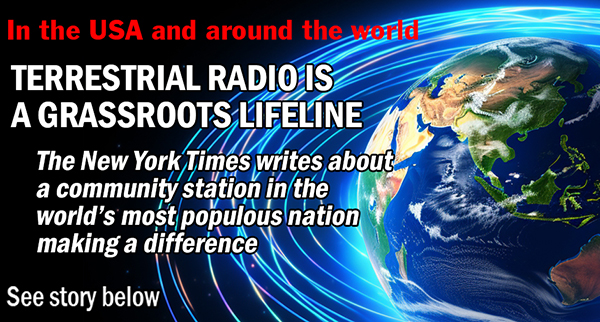
 Trump, currently on the docket for March 2024. RTDNA says it has consistently advocated for the public’s right to live audio and video coverage of the multiple trials facing the former president. RTDNA CEO Dan Shelley states, “For decades, RTDNA has been the nation’s leading advocate for cameras in courtroom. We believe Americans have a right to see for themselves if and how justice is administered to a former president of the United States. The only opportunity for the public to have any faith in the outcome of this trial is if people are able to see and hear the proceedings for themselves.”
Trump, currently on the docket for March 2024. RTDNA says it has consistently advocated for the public’s right to live audio and video coverage of the multiple trials facing the former president. RTDNA CEO Dan Shelley states, “For decades, RTDNA has been the nation’s leading advocate for cameras in courtroom. We believe Americans have a right to see for themselves if and how justice is administered to a former president of the United States. The only opportunity for the public to have any faith in the outcome of this trial is if people are able to see and hear the proceedings for themselves.”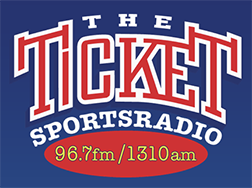 Friday (9/29). Cumulus objected to the two hosts publishing their “The Dumb Zone” podcast arguing that it violates the terms of their contracts, specifically the non-compete clause. McDowell and Kemp left “The Ticket” in July after being unable to come to terms on a renewal due to the two sides’ disagreement over digital initiatives. McDowell and Kemp had argued that Cumulus’ business is “the operation of terrestrial radio stations – old media – and it was only in that business that Plaintiff employed the Defendants.” Ultimately the two sides were ordered into mediation on the matter. The terms of the settlement have not been made public.
Friday (9/29). Cumulus objected to the two hosts publishing their “The Dumb Zone” podcast arguing that it violates the terms of their contracts, specifically the non-compete clause. McDowell and Kemp left “The Ticket” in July after being unable to come to terms on a renewal due to the two sides’ disagreement over digital initiatives. McDowell and Kemp had argued that Cumulus’ business is “the operation of terrestrial radio stations – old media – and it was only in that business that Plaintiff employed the Defendants.” Ultimately the two sides were ordered into mediation on the matter. The terms of the settlement have not been made public. 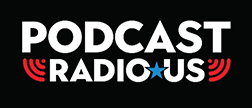 Southwest Florida.” The stations can also be streamed and consumed as podcasts via PodcastRadioUS.com. Podcast Radio states, “Podcast Radio features live ‘Podjocks’, including former KROQ-FM, Los Angeles personality and legendary Radio Hall of Famer Gene ‘Bean’ Baxter. The format will showcase the very best produced and popular podcasts from the United States and all over the world, including audio content from TedAudio (TedTalk), Wondery, Evergreen, Corus, and more! The initiative with Beasley is the first of its kind for the company in the United States. The format will be offered to radio stations and groups on a network/barter basis via KMG Networks. AdLarge Media has been selected to facilitate the network advertising sales.” Beasley Media Group chief content officer Justin Chase says, “Podcast Radio is an idea that Caroline Beasley and our team have been thinking about and researching for years and we’re excited to be the first to launch this format in the United States. This concept has been highly successful for Gerry [Edwards] and his team in the United Kingdom, and we believe our audience will fall in love with the Podcast Radio U.S. version we present on our stations.”
Southwest Florida.” The stations can also be streamed and consumed as podcasts via PodcastRadioUS.com. Podcast Radio states, “Podcast Radio features live ‘Podjocks’, including former KROQ-FM, Los Angeles personality and legendary Radio Hall of Famer Gene ‘Bean’ Baxter. The format will showcase the very best produced and popular podcasts from the United States and all over the world, including audio content from TedAudio (TedTalk), Wondery, Evergreen, Corus, and more! The initiative with Beasley is the first of its kind for the company in the United States. The format will be offered to radio stations and groups on a network/barter basis via KMG Networks. AdLarge Media has been selected to facilitate the network advertising sales.” Beasley Media Group chief content officer Justin Chase says, “Podcast Radio is an idea that Caroline Beasley and our team have been thinking about and researching for years and we’re excited to be the first to launch this format in the United States. This concept has been highly successful for Gerry [Edwards] and his team in the United Kingdom, and we believe our audience will fall in love with the Podcast Radio U.S. version we present on our stations.”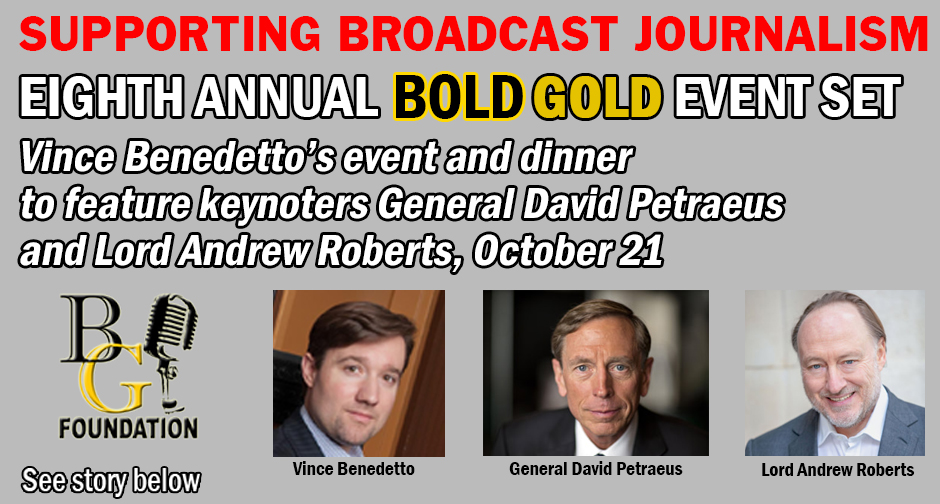
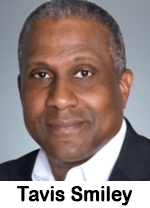 airing the program yesterday (9/11) and WVON starts on October 2. Additional networks and stations picking up the “Tavis Smiley” show this month include the “We Believe Radio” network in Mississippi and its affiliates. Smiley says, “In little more than a month, our radio show is now heard in three of the nation’s top five markets. We’re excited that more of America now has access to our innovative and empowering programming with groundbreaking and exclusive conversations. Our rapid expansion is filling a void for African American and progressive listeners in a growing number of markets throughout the United States during this critical presidential election season.” WURD Radio CEO Sara M. Lomax comments,
airing the program yesterday (9/11) and WVON starts on October 2. Additional networks and stations picking up the “Tavis Smiley” show this month include the “We Believe Radio” network in Mississippi and its affiliates. Smiley says, “In little more than a month, our radio show is now heard in three of the nation’s top five markets. We’re excited that more of America now has access to our innovative and empowering programming with groundbreaking and exclusive conversations. Our rapid expansion is filling a void for African American and progressive listeners in a growing number of markets throughout the United States during this critical presidential election season.” WURD Radio CEO Sara M. Lomax comments,  “WURD Radio is excited to bring the ‘Tavis Smiley’ show to our listeners in Philadelphia and beyond. Tavis brings a powerful mix of dynamic interviews, pointed social and political commentary and a roster of A-list guests. He is a welcome addition to WURD’s lineup of progressive Black talk programming. Our listeners will be informed, entertained and enlightened by the insightful conversations with notable and influential figures Tavis hosts on his program every day.” WVON chief Melody Spann Cooper says, “We’re excited about Tavis’ return to Chicago radio. He has had a long association with WVON. His show is a perfect fit to offer a national perspective on Black America.” Tavis Smiley recently received the coveted “Freedom of Speech Award” at the Talkers 2023 conference held on June 2, 2023.
“WURD Radio is excited to bring the ‘Tavis Smiley’ show to our listeners in Philadelphia and beyond. Tavis brings a powerful mix of dynamic interviews, pointed social and political commentary and a roster of A-list guests. He is a welcome addition to WURD’s lineup of progressive Black talk programming. Our listeners will be informed, entertained and enlightened by the insightful conversations with notable and influential figures Tavis hosts on his program every day.” WVON chief Melody Spann Cooper says, “We’re excited about Tavis’ return to Chicago radio. He has had a long association with WVON. His show is a perfect fit to offer a national perspective on Black America.” Tavis Smiley recently received the coveted “Freedom of Speech Award” at the Talkers 2023 conference held on June 2, 2023.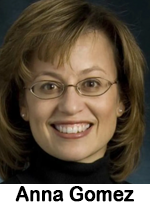 Rosenworcel says, “Congratulations to Anna Gomez on her confirmation by the United States Senate. I look forward to welcoming her to the Commission. Anna brings with her a wealth of telecommunications experience, a substantial record of public service, and a history of working to ensure the United States stays on the cutting edge of keeping us all connected. Her international expertise will be a real asset to the agency. I look forward to working with her to advance the agency’s mission to ensure the benefits of modern communications reach everyone, everywhere and that the United States can continue to lead in the digital age.”
Rosenworcel says, “Congratulations to Anna Gomez on her confirmation by the United States Senate. I look forward to welcoming her to the Commission. Anna brings with her a wealth of telecommunications experience, a substantial record of public service, and a history of working to ensure the United States stays on the cutting edge of keeping us all connected. Her international expertise will be a real asset to the agency. I look forward to working with her to advance the agency’s mission to ensure the benefits of modern communications reach everyone, everywhere and that the United States can continue to lead in the digital age.”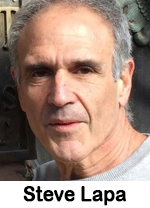 Which is the more important “check the box” trait – persistence or passion?
Which is the more important “check the box” trait – persistence or passion? remains ranked #1 with 281,120 Average Active Sessions. Following at #2 is NPR Member Stations (69,006 AAS) and Audacy at #3 (62,853 AAS). Cumulus Streaming Network is #4 (36,554 AAS), Beasley Broadcasting Corporate comes in at #7 (15,728 AAS), followed by Hubbard Broadcasting at #8 (13,478 AAS), and Urban One at #9 (9,131 AAS).
remains ranked #1 with 281,120 Average Active Sessions. Following at #2 is NPR Member Stations (69,006 AAS) and Audacy at #3 (62,853 AAS). Cumulus Streaming Network is #4 (36,554 AAS), Beasley Broadcasting Corporate comes in at #7 (15,728 AAS), followed by Hubbard Broadcasting at #8 (13,478 AAS), and Urban One at #9 (9,131 AAS).  Consider the following song titles:
Consider the following song titles: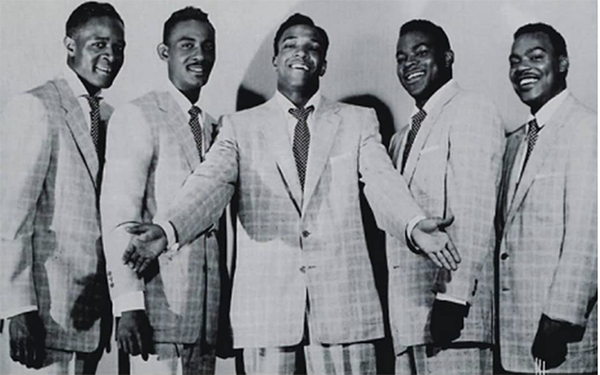
 by more than 2 million people nationwide on a weekly basis. “The World” executive producer Dan Lothian says, “We’re delighted to welcome people from Florida, Wisconsin, Nevada, Ohio, Iowa, New York, Michigan, Illinois, and Kansas to the hundreds of communities listening to The World’s global coverage. As we reach this exciting audience milestone, we remain committed to bringing all our listeners nuanced coverage of the most critical global issues of the day, fueling informed conversations about international affairs.”
by more than 2 million people nationwide on a weekly basis. “The World” executive producer Dan Lothian says, “We’re delighted to welcome people from Florida, Wisconsin, Nevada, Ohio, Iowa, New York, Michigan, Illinois, and Kansas to the hundreds of communities listening to The World’s global coverage. As we reach this exciting audience milestone, we remain committed to bringing all our listeners nuanced coverage of the most critical global issues of the day, fueling informed conversations about international affairs.” the history making adventure of a lifetime, blowing the lid off the Iran-Contra scandal and almost taking down the Reagan presidency.” Former New York Times bureau chief Stephen Kinzer states, “During the 1980s and 1990s, Cookie Hood was the single driving force behind the most successful television coverage of Central America that appeared across the United States. ‘Journalista’ is a series of stories over four decades in the making and will entrance each listener to the realities of what really happened during that time.”
the history making adventure of a lifetime, blowing the lid off the Iran-Contra scandal and almost taking down the Reagan presidency.” Former New York Times bureau chief Stephen Kinzer states, “During the 1980s and 1990s, Cookie Hood was the single driving force behind the most successful television coverage of Central America that appeared across the United States. ‘Journalista’ is a series of stories over four decades in the making and will entrance each listener to the realities of what really happened during that time.” HALF of all radio stations in the United States lose money – at least they did back in 1991. The NAB used to put out an annual report revealing how many radio stations were profitable. Usually half the stations in America lost money. Since consolidation, the NAB stopped putting out that report. It is reasonable to believe that far, far fewer stations lose money today. Shared costs, real estate, technical economies due to digital equipment versus analog all indicate that there must be fewer money-losing properties.
HALF of all radio stations in the United States lose money – at least they did back in 1991. The NAB used to put out an annual report revealing how many radio stations were profitable. Usually half the stations in America lost money. Since consolidation, the NAB stopped putting out that report. It is reasonable to believe that far, far fewer stations lose money today. Shared costs, real estate, technical economies due to digital equipment versus analog all indicate that there must be fewer money-losing properties. and entrepreneurs. The company says Smiley will continue to serve as managing editor of his signature show with SmileyAudioMedia, Inc producing and syndicating the program. The program’s first affiliate station is Equity Media LLC’s talk WBOK, New Orleans. Smiley says, “We’re excited to bring our radio program to listeners across America. Our innovative programming with groundbreaking, exclusive interviews has filled a void for African American and progressive listeners in Southern California and soon in markets throughout the United States.” Smiley was honored with the “Gene Burns Memorial Award for Freedom of Speech” – a.k.a., the Freedom of Speech Award – from TALKERS magazine at this year’s TALKERS 2023 conference held on June 2 at Hofstra University.
and entrepreneurs. The company says Smiley will continue to serve as managing editor of his signature show with SmileyAudioMedia, Inc producing and syndicating the program. The program’s first affiliate station is Equity Media LLC’s talk WBOK, New Orleans. Smiley says, “We’re excited to bring our radio program to listeners across America. Our innovative programming with groundbreaking, exclusive interviews has filled a void for African American and progressive listeners in Southern California and soon in markets throughout the United States.” Smiley was honored with the “Gene Burns Memorial Award for Freedom of Speech” – a.k.a., the Freedom of Speech Award – from TALKERS magazine at this year’s TALKERS 2023 conference held on June 2 at Hofstra University. In order to measure interest in podcast content pre-launch, Coleman Insights is having 1,000 United States and Canadian podcast listeners (in the 18 – 64 demo) rate podcast show titles and elevator pitches on a one to five scale. Regarding this “Pod Predictor” concept, Coleman Insights vice president/consultant Jay Nachlis comments, “So much money and time is invested in the launch of new podcasts without any intel as to how that content will be received. With ‘Pod Predictor,’ podcasters can determine how appealing their concept is at an affordable price point, allowing them to refine their marketing message before launching it to the public.” Possessing the ability to test one or multiple concepts, “Pod Predictor” is available to individual publishers and networks. Results will be delivered with total results, as well as breakdowns by age, gender, ethnicity, geography, and category interest.
In order to measure interest in podcast content pre-launch, Coleman Insights is having 1,000 United States and Canadian podcast listeners (in the 18 – 64 demo) rate podcast show titles and elevator pitches on a one to five scale. Regarding this “Pod Predictor” concept, Coleman Insights vice president/consultant Jay Nachlis comments, “So much money and time is invested in the launch of new podcasts without any intel as to how that content will be received. With ‘Pod Predictor,’ podcasters can determine how appealing their concept is at an affordable price point, allowing them to refine their marketing message before launching it to the public.” Possessing the ability to test one or multiple concepts, “Pod Predictor” is available to individual publishers and networks. Results will be delivered with total results, as well as breakdowns by age, gender, ethnicity, geography, and category interest.